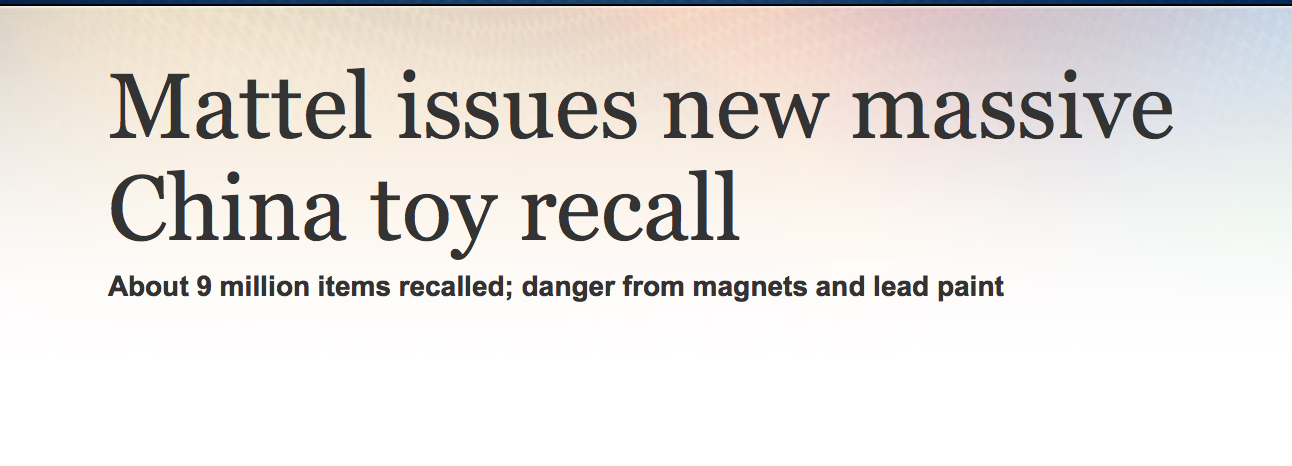The Illusive Market Crash
 The panic of 1901, the panic of 1907, the depression of 1920-21, the crash of 1929, the Brazilian market crash of 1971, the crash of 1973-74, 1987, 1998 2000, 2007-08…..and on and on. I have only mentioned a few. In spite of what history tells us, less and less people think that it is possible for the stock markets to crash again.
The panic of 1901, the panic of 1907, the depression of 1920-21, the crash of 1929, the Brazilian market crash of 1971, the crash of 1973-74, 1987, 1998 2000, 2007-08…..and on and on. I have only mentioned a few. In spite of what history tells us, less and less people think that it is possible for the stock markets to crash again.
So are things really different this time? Will markets never go down again? In order to understand this we can look at what has changed since the last downturn in the market. 1) The Central Banks have created over $4 trillion of liquidity (more if you add up all the central bank interventions), so investors have come to believe that no matter what happens the central banks will be there to pick up the pieces and just print more money. The word for this is moral hazard. If you invest in something and believe that if you lose, somebody will support you financially, are you going to take less risk or more risk? The answer is you are going to take more risk. You would be stupid not to, seeing that you can’t lose no matter what you do. 2) High Frequency Traders (HFT) have increased in size and number. They now make up the largest portion of volume traded on the stock exchanges. This was not the case in 2007-2008 and before.
The next thing to understand is value. What is the value in the market that makes it go up? We can simplify this with an example. Let’s say a special doll has come out on the market. It cost $5 to manufacture and sells for $10. They start to sell out fast. In fact, some people buy them and resell them which pushes the price up. That pulls more people into the market which pushes the price up even more. Now you are paying $20 for the doll. In order to buy a doll you need to find somebody to sell. As long as the price goes up, people get greedy and hold out for more, which makes the price go up even more.
There is a percieved value that creates demand and pushes the price up but what happens in the inverse? Let’s imagine that the doll was made in China and suddenly news came out that the paint was toxic and making people sick. Suddenly nobody wants to buy. The price goes from $20 down to $3. The value just evaporates. In fact, the doll becomes worthless and drops to 0. Nobody wants to buy because the percieved value is 0. Who wants to buy something that will make them sick?
Now let’s go back to the markets. Just like the doll, the markets will keep going up “as long as” there is percieved value, however, if investors suddenly get worried, that value could evaporate like the value of the doll did. If a stock is trading at $200, but the percieved value becomes $20, the next buyer will be at $20 and just like that the value is evaporated (there are many companies that have alot of value and wouldn’t be expected to lose so much value, but the more extended the price the greater the potential drop). To make matters worst, HFT are basically computer programs. They are unemotional, however, when the people who are running them identify a shock to the market, they shut the machines off. These machines are currently creating most of the bids in the market. If they disappear, the bid disappears and falls like a rock. This is what happened during the flash crash of 2010.
So what about the central banks? They can just come in and print money if the market falls and help to push it back up again. There is some false logic in there because for every action there is a reaction. The money that the Fed prints does not disappear from the system. It will eventually have an effect on the US dollar. Let’s go back to the doll. Imagine the Fed was producing the dolls (they were not produced in China and the paint was not toxic). The thing is the Fed suddenly produced so many dolls that they were found in every shop on every corner. What would happen to percieved value? Well, the idea of scarcity would no longer be there. The dolls are no longer special and people are no longer going out of the way to buy them so the value would drop. It could keep dropping even below the cost price if people have no interest in buying.
This could happen to the US dollar. If the perception is that the US dollar is no longer that valuable, its percieved value would drop. What happens when it goes down? Everything becomes more expensive for everybody holding dollars. What happens if your dollars keep declining in value? You will want to get rid of them and change for something else. The US stock markets are priced in US dollars. So, if the central banks continue to print, the US dollar could lose its value to the point where people will sell their dollar denominated assets, such as stocks and bonds.
So, we have two potential forces that could cause an incredible amount of damage to the stock markets. What will cause the start of it? That is what a few of us are trying to identify. What about everybody else? Well, it looks as though they are still pushing the price up of dolls made with toxic paint.





Great post and helps to really put the macro trends in perspective. I am utterly confused at when and how, and for how long, we will feel the impact of the liquidity and easy credit flushed into the market. At the same time regulators are imposing more restrictions on capital requirements for banks around credit (Basel 3.5 or 4 accord in Europe) - maybe that is an effort to put a flow control on some of the liquidity.
Interesting piece by @calaberp24 on related currency supply issue although I think the issue is more about overall intervention than the "type" of currency. https://steemit.com/money/@calaber24p/running-economies-off-a-fixed-currency-supply-is-a-terrible-idea-here-s-why
@minnowpond1 has voted on behalf of @minnowpond. If you would like to recieve upvotes from minnowponds team on all your posts, simply FOLLOW @minnowpond.
@originalworks
The @OriginalWorks bot has determined this post by @thehutchreport to be original material and upvoted it!
To call @OriginalWorks, simply reply to any post with @originalworks or !originalworks in your message!
To enter this post into the daily RESTEEM contest, upvote this comment! The user with the most upvotes on their @OriginalWorks comment will win!
For more information, Click Here! || Click here to participate in the @OriginalWorks sponsored writing contest(125 SBD in prizes)!!!
Special thanks to @reggaemuffin for being a supporter! Vote him as a witness to help make Steemit a better place!
This post was resteemed by @resteembot!
Good Luck!
Your post was resteemed thanks to @petpeeves
Curious? Check out:
The @resteembot users are a small but growing community.
Check out the other resteemed posts in resteembot's feed.
Some of them are truly great.
Really good example with the doll. Thank you for your post, really interesting.
They are scary times in which "buy the dip" becomes the only game.
Better to stay cash those times and buy only where the "there will be blood on the streets" (quoting the Rothschild). The central bank money printing has to stop sooner or later.